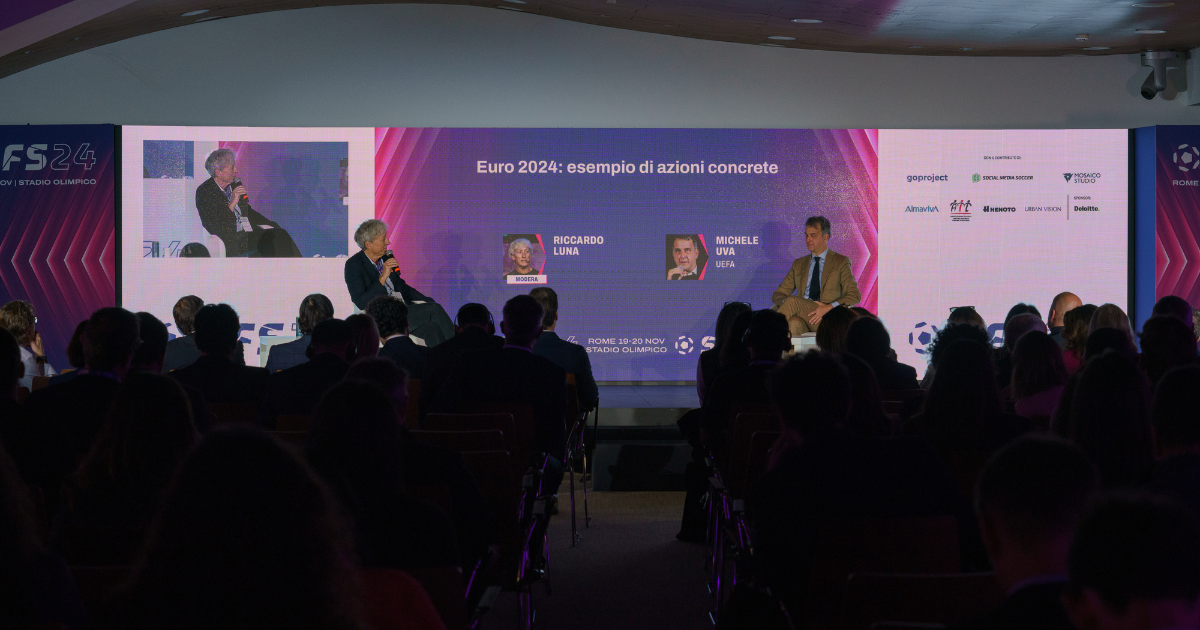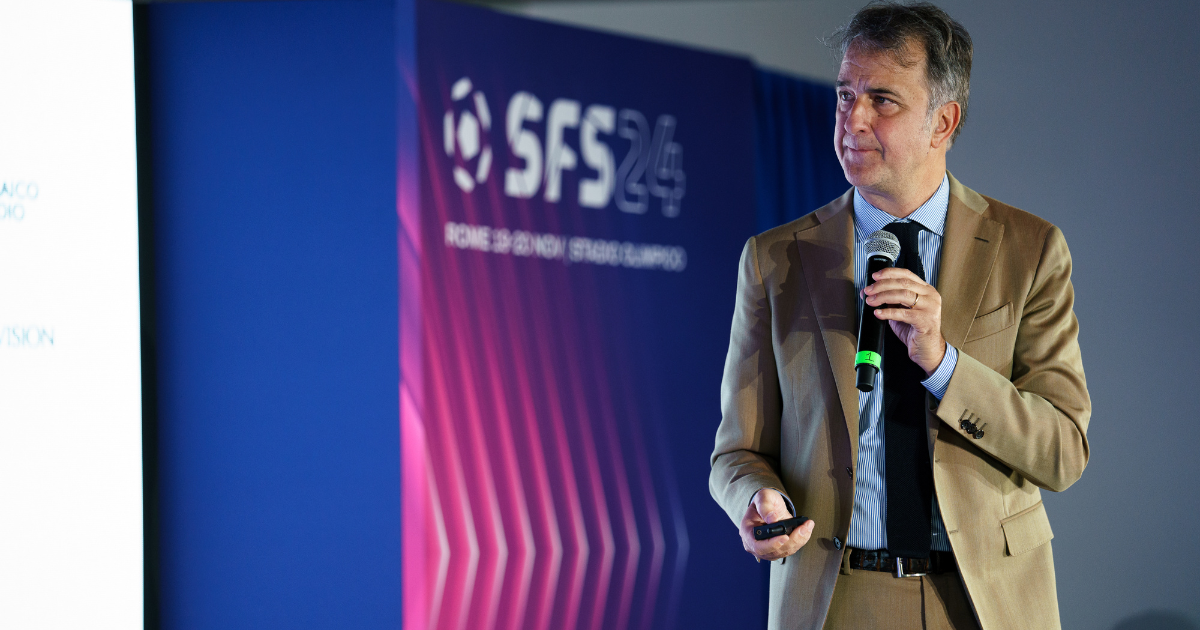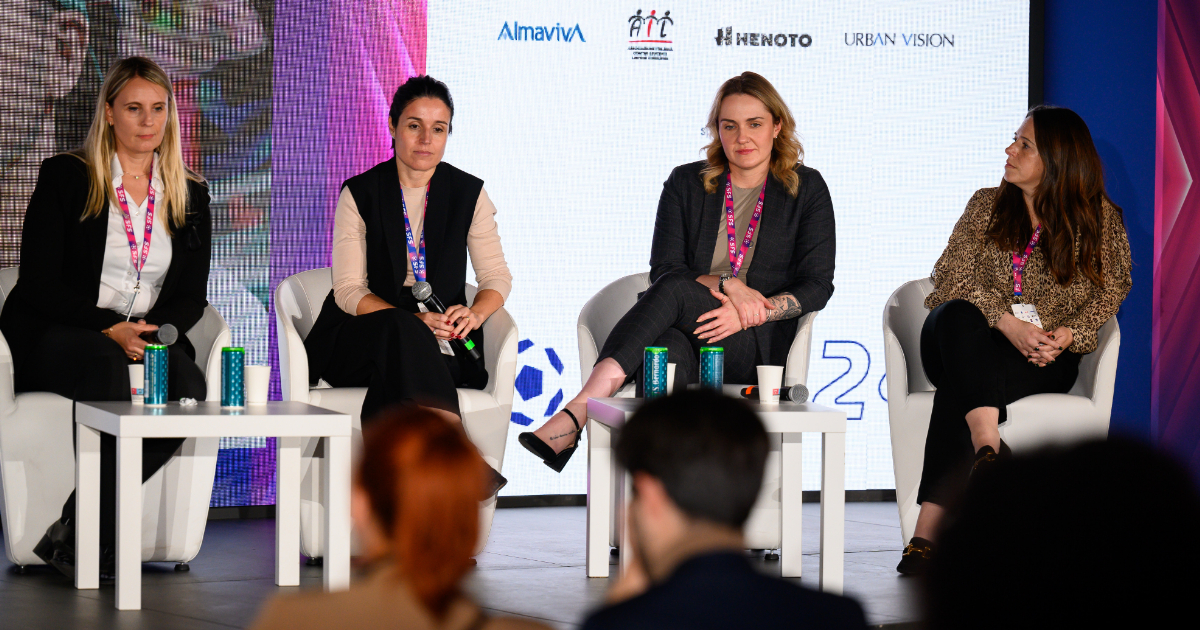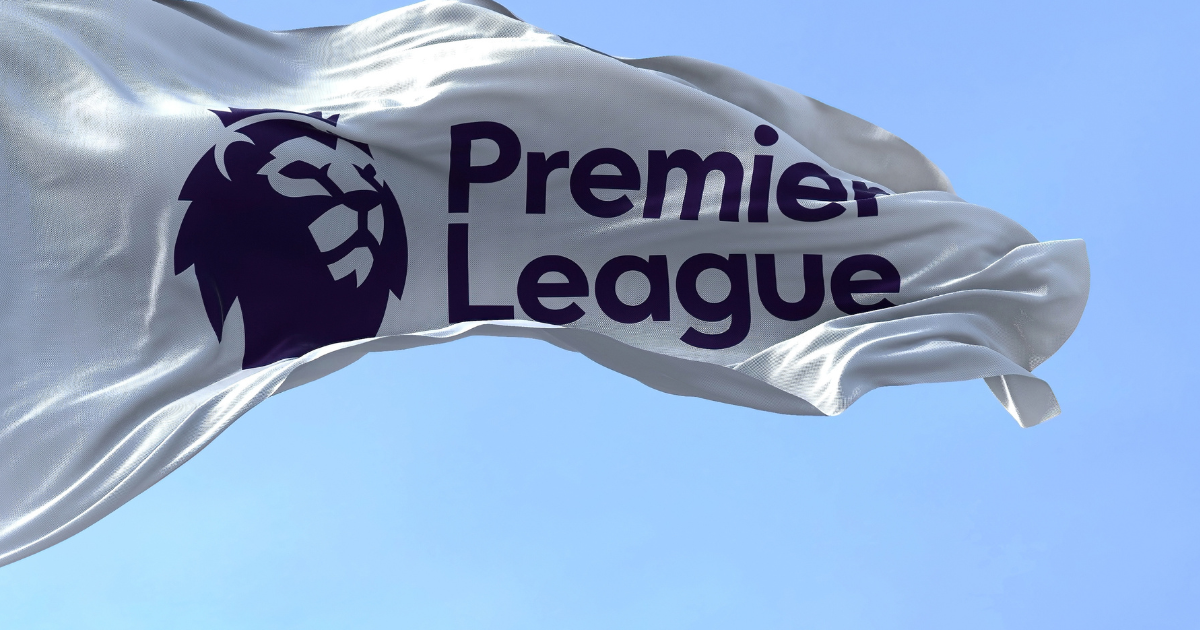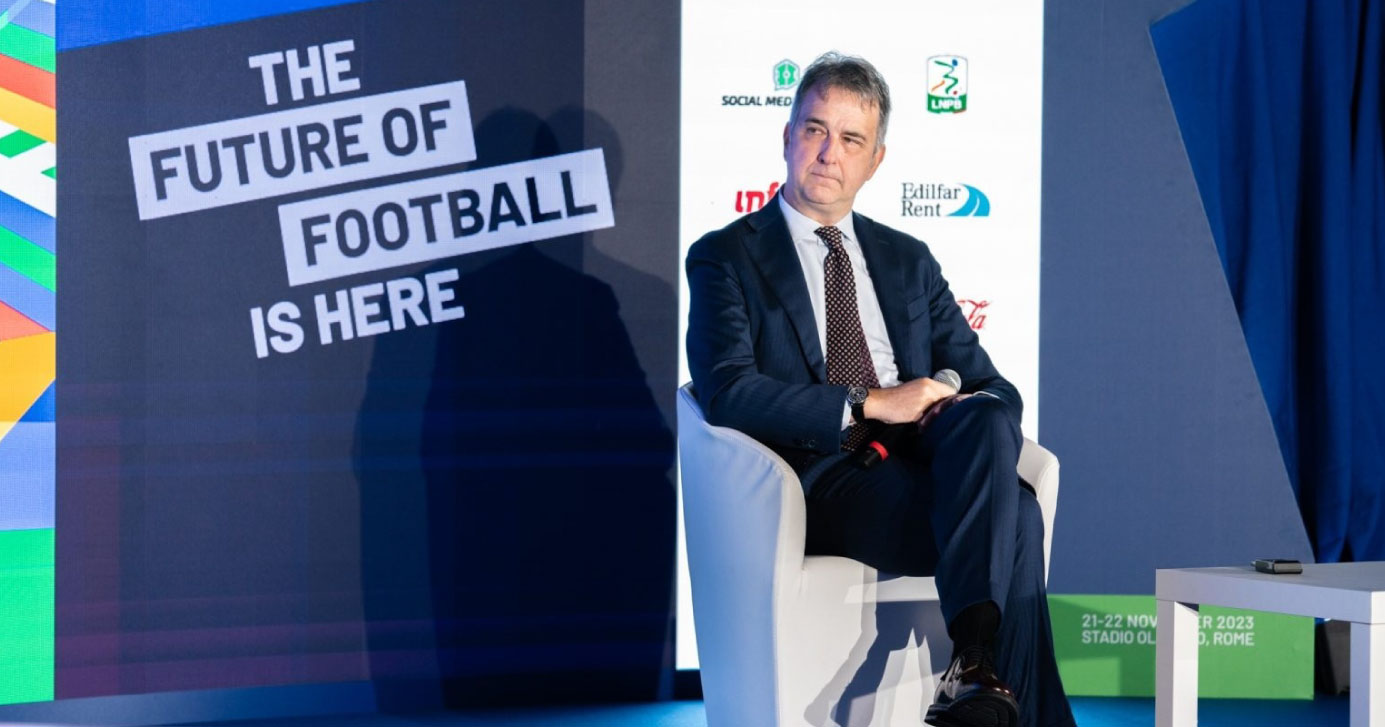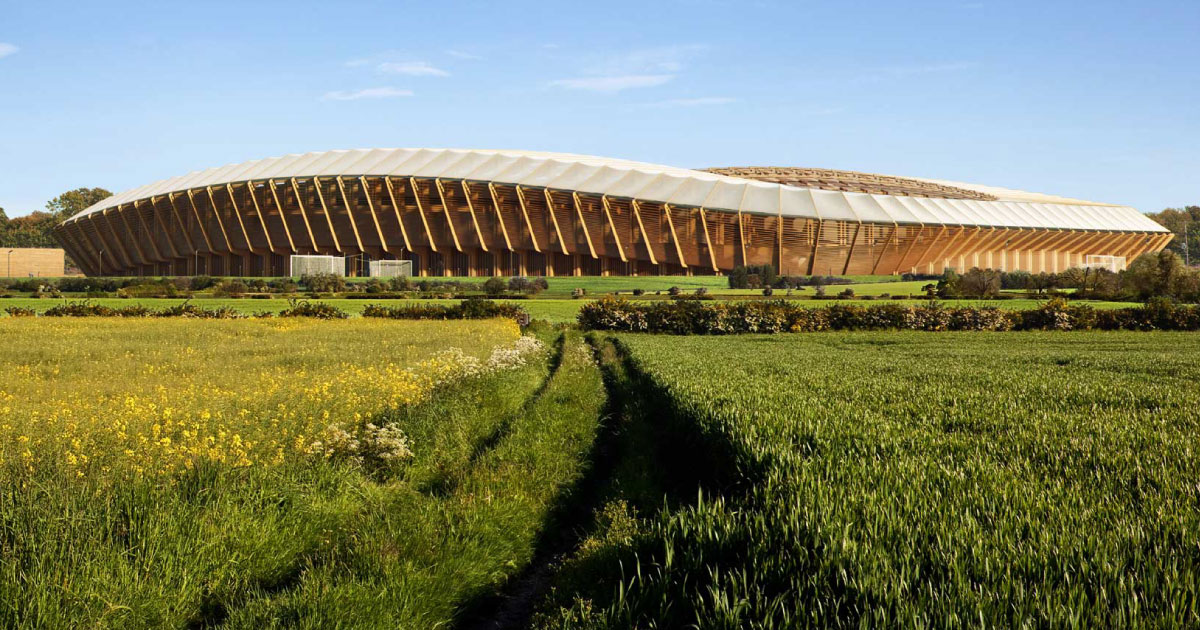After presenting the ESG strategies implemented for EURO2024, Michele Uva – UEFA’s Director of Social & Environmental Sustainability – was interviewed on stage at the SFS by journalist Riccardo Luna. The panel, titled “Euro2024: an example of concrete actions“, focused on sustainability, which Uva himself described as “an essential asset with significant cultural and social influence“. Just days before COP29, the United Nations Climate Change Conference, the Summit devoted considerable attention to the interplay between environmental policies and the football industry.
Does a more sustainable UEFA attract greater sponsorship?
Absolutely, since sponsors are keen to associate their brand with clubs or federations that demonstrate concrete actions aimed at achieving tangible and measurable outcomes. “Today, all clubs have included an ESG manager in their structure,” said Uva, “but achieving the set objectives requires strong commitment from management. The path to sustainability requires collective action.” A long and challenging journey, with clear cultural and social implications for all stakeholders involved.
Spotlight on virtuous models
During the panel, Udinese – one of six clubs invited to COP29 – was highlighted for its commitment to adopting proper environmental practices. A true example to follow, especially considering that the Bluenergy Stadium will soon feature a solar park with 2,409 panels, aiming for energy self-sufficiency.
UEFA’s sustainability playbook
A set of guidelines defined by UEFA was also applied during the 2024 Coppa Italia final, held at the Stadio Olimpico between Atalanta and Juventus. However, Italy still lags behind other European countries in these efforts. “Abroad, the approach is bottom-up, with driving forces coming from the grassroots level. In Italy, on the other hand, we tend to favor a top-down system, which creates a gap between teams and decision-makers. However, there is room for improvement, and this can only be achieved through precise standards of efficient planning,” stated the UEFA Director.
In conclusion
The future of the football industry will depend on the ability of all actors involved to embrace a sustainable and collaborative approach. Only by doing so can the world’s most beloved game be transformed into a driving force for global change.
“The path to sustainability requires collective action”, said Michele Uva at SFS24
After presenting the ESG strategies implemented for EURO2024, Michele Uva – UEFA’s Director of Social & Environmental Sustainability – was interviewed on stage at the SFS by journalist Riccardo Luna. The panel, titled "Euro2024: an example of concrete actions", focused on sustainability, which Uva himself described as "an essential asset with significant cultural and social influence". Just days before COP29, the United Nations Climate Change Conference, the Summit devoted considerable attention to the interplay between environmental policies and the football
EURO 2024, ESG strategies with Michele UVA
Michele Uva, UEFA Director of Social & Environmental Sustainability, presented a summary of the key ESG (Environmental, Social and corporate Governance) actions implemented for the UEFA Euro 2024 tournament held in Germany at the SFS24. This journey began two and a half years ago with the aim of defining a replicable path for the future for UEFA, federations, and amateur clubs. Before outlining the ESG activities, however, Uva wanted to outline the scope of the event in terms of personnel involved, cumulative
Football’s commitment to sustainability at 360°
The SFS hosted a panel dedicated to the issues of environmental sustainability applied to football at 360 ° and inclusiveness in the management of sports clubs. Present at the debate were Anna Sagarra representing Real Betis, Jenny Morris, Director of City Football Leadership Institute and Sarah Batters of the London Lionesses. The commitment made by the Spanish club Real Betis with the "Forever Green" project is significant. "The initiative reached 600 thousand people on social media with 18 different activities carried
Sustainability in the Premier League
Football cannot be considered solely for its technical, tactical, and entertainment value. The most beautiful game in the world, in fact, is inevitably also concerned with considerations related to sustainability (ESG). This does not only refer to the economic aspect but also includes environmental governance, social inclusion matrices, and infrastructure-related issues. And it is precisely at the Stadio Olimpico in Rome, during the SFS24 event, that sustainability will be the protagonist of an interesting panel featuring Chris Goodwin and Tom Harris,
Sustainability will be at the heart of SFS24
This is an increasingly central theme for all major events, and we will try to explain why. The recent edition of the European Championships, held in Germany, did not go as we had hoped. As we know very well by now, Spalletti's national team failed to express the game they wanted and stepped aside for an excellent Switzerland. However, there is a fellow countryman who can absolutely consider EURO 2024 a success. You may be wondering who that is, and the question is absolutely
From the “Golden Goal” to the “Green Goal” – The Sustainable Future of Football
Football, the sport that captures the hearts of billions worldwide, has a long history of evolution both in its rules and its cultural impact. From 1993 to 2004, fans had to hold their breath in anticipation of the Golden Goal – a rule used to decide knockout matches that went into extra time. According to this rule, the first team to score during extra time would immediately win the match. The Golden Goal is especially remembered by the teams that



